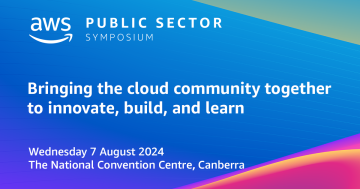Marla M. Capozzi and Tiffany Vogel* say a learning mindset and three specific actions can help organisations prepare for and mitigate future disruption.
 Anticipation of the post-pandemic future, coupled with growing demand for the new, emerging skillsets needed for the jobs of tomorrow, is pushing leaders to prepare for unprecedented organisational change.
Anticipation of the post-pandemic future, coupled with growing demand for the new, emerging skillsets needed for the jobs of tomorrow, is pushing leaders to prepare for unprecedented organisational change.
Research shows that 85 per cent of jobs expected in 2030 will be in professions that don’t exist yet.
In our view, nine imperatives are critical to becoming future-ready—and accelerating learning is one of them.
If accelerated learning is implemented successfully, the rewards are more innovation, expanded capabilities, and the ability to reskill in real time.
When it comes to learning, the barrier that often holds organisations and learners back is a tendency to focus on what we know.
Most people spend their time in performance mode, trying to demonstrate “This is what I know and this is my expertise,” rather than in a learning mode, asking “What do I need to learn to improve myself and deliver?”
To combat this, we need to learn to learn. Learning is a muscle that can be built, flexed, and strengthened—helping people learn faster, adapt to change better and more quickly, and build resilience.
No matter how experienced someone is, adaptability and resilience predict continuous learning success.
Those traits are also essential design criteria for learning systems: the ecosystem and climate an organisation establishes for learning and reskilling.
So, how do companies and leaders accelerate learning and prepare their organisations and employees for the future? These three actions can pave the way.
- Cultivate a learning orientation at all levels.
Companies should help individuals, teams, and the whole organisation embrace experimentation, risk, and surprise.
Most learning occurs on the job from testing assumptions and new ideas.
But to make that learning stick, companies need to create space for people to learn from both failures and successes—their own and those of others.
That’s where processes and formalised structures like feedback loops, and cultural elements such as psychological safety, help lead to change.
Leadership must have a learning orientation, but it can’t only exist at the top.
In one example, a global company launched its cultural transformation starting with leadership development for senior leaders.
The program was then tailored and scaled throughout the entire organisation, signalling the importance of learning for individuals and teams at all levels.
- Promote connectivity and engagement.
Creating open-knowledge systems can engage employees, helping them share and access learning and find ways to innovate.
Technology, including digital learning, will be an important factor in scaling learning and collecting data that helps companies continually ramp up their efforts. Just as important are human connections.
Those connections create a network that enables employees to learn from others and build that psychological safety across the organisation.
- Create a learning environment that supports reskilling.
Learning is a creative discipline that requires a blend of on-the-job practice and formal training, as well as space for curiosity.
It is curiosity that fuels the desire to learn and inspires people to try something new, including reskilling.
More than 87 per cent of executives report skills gaps in their organisation. The way to meaningfully address those is by creating an environment where people can “learn to learn” and become more adaptable and resilient.
Simply getting started on reskilling programs makes organisations better prepared for potential future role disruption—and is preferable to waiting.
Start now, test rapidly, and iterate.
By committing to skilling efforts now and building institutional learning while capturing what works and what doesn’t, organisations can apply those lessons during disruptive events in the future.
As organisations seek to become future-ready and thrive in a post-pandemic world, the learning and development function must rise to the challenge.
Building strategic capabilities, skills, and learning mindsets will provide value now and over the long term.
Embracing this imperative will accelerate employee growth, continuous improvement, and innovation at scale.
*Marla M. Capozzi works with clients to build leadership capabilities at scale to help organisations shape their future at McKinsey. Tiffany Vogel advises leading financial-services clients on digital transformations, strategy, enterprise agility, and product redesign, with a focus on digital talent and leadership development at McKinsey.
This article first appeared at mnkinsey.com.











